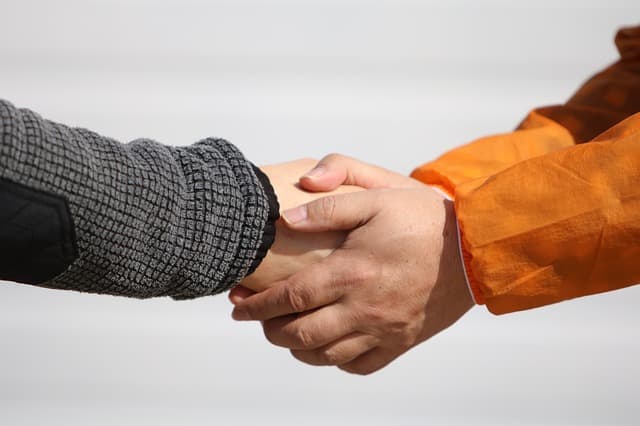It is clear that atheists have the right to support whichever political candidates they want and to be as vocal in their support as they choose to be. I think that lots of us would like to see more atheists being politically active. I have found myself wondering lately whether there might be a potential downside of how some atheists are expressing their support for various candidates on social media. Here's the question to consider:
When it comes to a candidate's odds of winning an election, might it sometimes do more harm than good for open atheists to publicly support political candidates? It seems like there might be a real risk, at least in some locations, of the candidate's opponents using the fact that he or she is supported by atheists against him or her.
I have to admit that this is something that only occurred to me recently. If I were to use my Twitter account to promote a candidate I like, might I be hurting more than helping? One concern would be that the candidate's opponents would use support from atheists as a weapon against the candidate. Still another is that religious believers who supported the same candidate might decide that they should reconsider supporting the same candidate that atheists support. And then, of course, there's the question of how the candidate and his or her campaign feels about having the support of atheists. It might be something they'd be happy to have, but it might not.
There is some evidence that atheists have made at least some progress in the U.S. with respect to not being hated so much as we used to be. More Americans say they are willing to consider the possibility of voting for a secular candidate, and so on. But even if we were to adopt the most optimistic take we could, I think it is clear that we still have a long way to go. Bigotry against atheists is still common and far too socially acceptable.
Most political candidates would not want to publicly associate with members of a widely hated group because they'd recognize it as a liability. Even most Republican candidates will eventually issue statements and try to distance themselves from White supremacist groups. I'm not trying to suggest that atheists are as hated to the same degree; however, it would not surprise me to learn that many politicians would be uncomfortable if many outspoken atheists were to publicly support them. They might even feel the need to distance themselves from us by going out of their way to state that they are not atheists, etc.
I think this is an important question to ask that gets to the issue of pragmatism. Suppose I have a candidate for Congress I really like. If I really want this candidate to win, maybe I should look for ways to support him or her that conceal my atheism. I might create a new Twitter account that doesn't say anything about atheism. I might steer clear of the #AtheistVoter or #AtheistsENGAGE hashtags. I might avoid endorsing this candidate at Atheist Revolution. I might do these things because I want the candidate to win and worry that being linked to atheists might not help.
